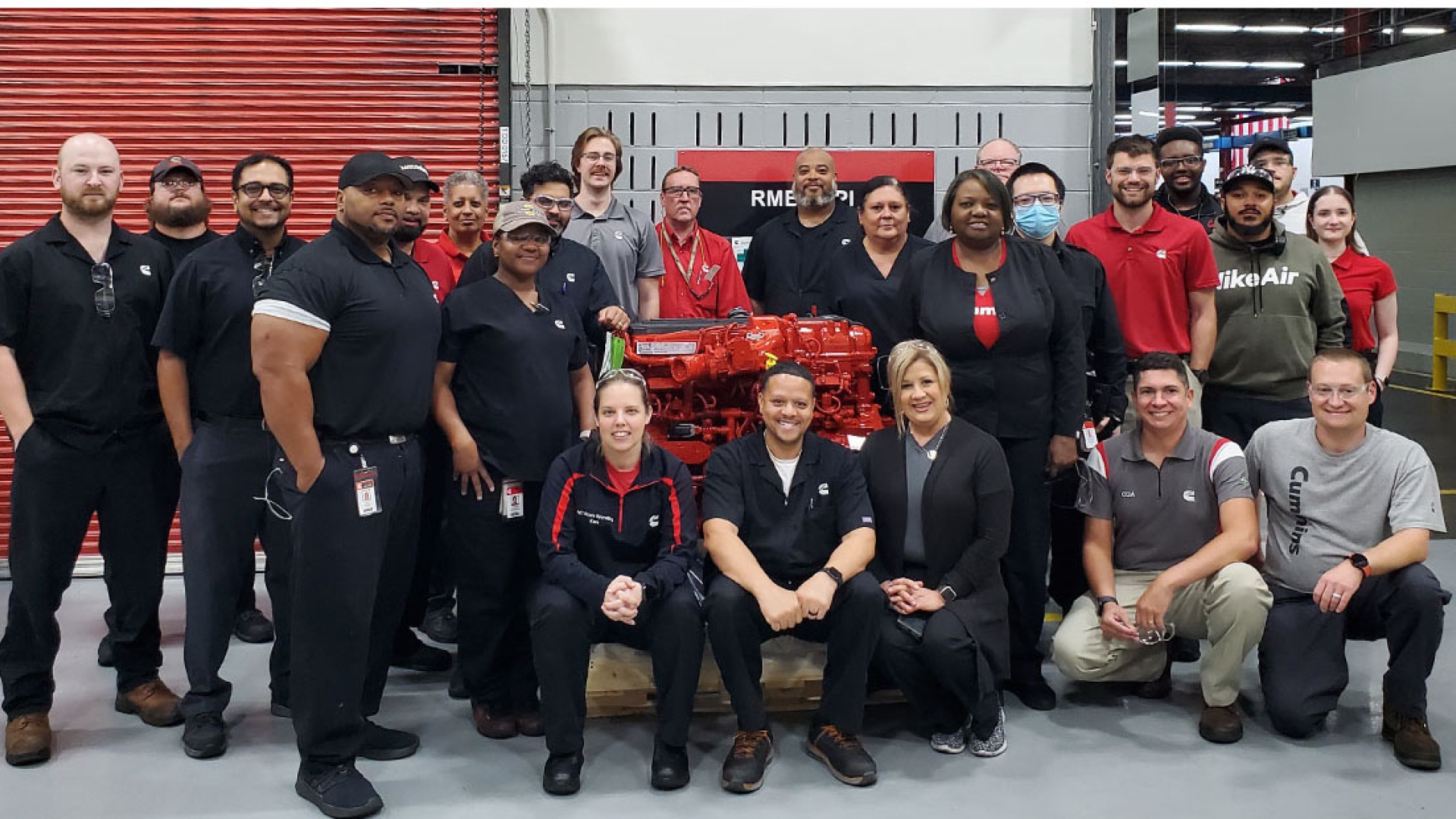Rocky Mount Engine Plant VPI Lab begins fuel-agnostic prototype engine production
Cummins Inc. RMEP builds and tests fuel-agnostic engine in its VPI Lab to decrease downtime ahead of full manufacturing process
By Cummins Inc., Global Power Technology Leader

After building its 5 millionth engine, Cummins Inc.’s Rocky Mount Engine Plant (RMEP) is continuing its long history of innovation in engine technology and manufacturing. The next stop? Building fuel-agnostic engines in their VPI Lab.
What is the VPI Lab?
VPI, or value package introduction, is Cummins’ process for commercializing technology for market through the definition, design, development and introduction of products, services and information for our customers.
In 2022, Cummins announced the industry-first fuel-agnostic internal combustion powertrain solution. The fuel-agnostic engine platform is designed to help reduce carbon emissions in commercial transportation. Optimized for different low-carbon fuel types using a high degree of parts commonality, RMEP’s VPI Lab will begin building the prototype engines before they’re approved to hit the main assembly line. Various projects are in progress at the plant to upgrade the current production line and create a new low-volume production line, both of which will be capable of building both current and new products.
Charles Murray, the Project Manager, made the upgrades to the VPI Lab to replicate the production environment for building Alpha prototype engines to identify potential issues and drive resolutions earlier in the VPI process prior to Beta builds. Run by two engineers, seven technicians and supported by a large cross-functional team, the lab uses prototype parts and replicates the manufacturing process of the assembly line to build the engines. This allows them to identify errors, issues or roadblocks, ultimately decreasing downtime when the engine eventually moves to production.
"The first time we put an engine together it might not be the ideal way, but we continuously refine the process in this VPI lab," says Group Leader, Justin Howell. "In the future, when the engine does come to a new production assembly line, we won't have the same issues we saw on the line as we might have in the lab. Since we're using the same tools, we should have the same outcome."
Lab specialists validate the designs from a form, fit and function perspective. They make improvements as needed. It's critical to spot any needed changes during the VPI phase, as it's far more difficult to change the design and order of operations on the assembly line after the new engine goes into production.
"There's a lot of work that goes into preparing our RMEP to manufacture a new product here," Chief Engineer, Crystal Gwynn, says. "The VPI team works hard to identify any issues and get them resolved before full production manufacturing begins."
Benefits of the RMEP VPI Lab
The first Alpha gasoline engine, B6.7 Octane, that the RMEP produced was built in the VPI Lab. It continues to play a pivotal role in the production of future engines, as it will also work on Cummins fuel-agnostic engines like the X10, which will launch in North America in 2026.
Building the engines at the same site where they're manufactured opens up opportunities for collaboration between teams at the plant. Employees in the lab can train colleagues on new products and gain input to make each engine better.
"We want to build it first," Howell says. "Since the engine will be manufactured here as well, we want to build it first, too. We know what we're looking for, and we know how the engine is assembled. We want to refine that inside the plant."
Author Profiles

Cummins Inc., Global Power Technology Leader
Cummins Inc., a global power solutions leader, comprises five business segments - Components, Engine, Distribution, Power Systems, and Accelera by Cummins - supported by its global manufacturing and extensive service and support network, skilled workforce and vast technological expertise. Cummins is committed to its Destination Zero strategy - the company's commitment to sustainability and helping its customers successfully navigate the energy transition with its broad portfolio of products. Cummins has approximately 69,900 employees and earned $3.9 billion on sales of $34.1 billion in 2024. See how Cummins is leading the world toward a future of smarter, cleaner power at www.cummins.com.